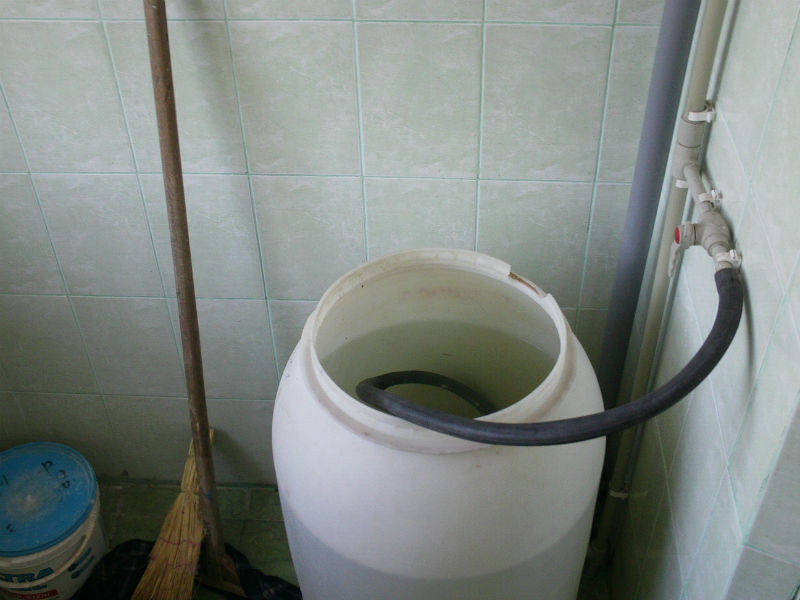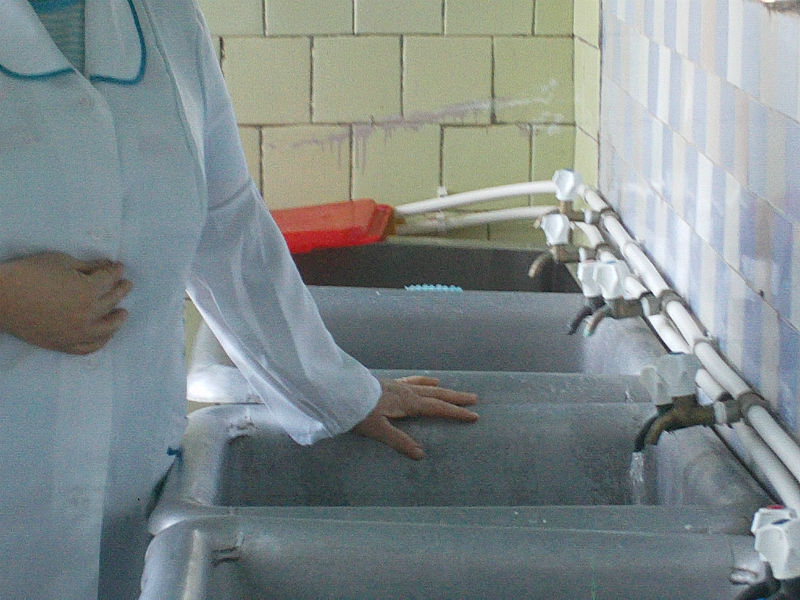Location
Yarkoye, Crimea, Ukraine
Community Description
Yarkoye is a village in Crimea consisting of just over 2,000 people. Many people in the village make a living through what they grow on their farms.
220 students attend Yarkovskaya School from the first to the eleventh grade. There are 38 employees at the school, including 24 teachers.
 There are 320 parents, including 26 single parents. 23 families of students are large and considered financially disadvantaged.
There are 320 parents, including 26 single parents. 23 families of students are large and considered financially disadvantaged.
Last year, the community in Yarkoye completed a mini-project through USAID to improve the drinking water throughout the village. Unfortunately, the water supply to the school is “technical water”, suitable for use for the land and crops, but not for drinking.
The water at the school was tested through a laboratory of the Ministry of Health located in Simferopol. The results showed that the water at the school, used for drinking, food preparation, and handwashing, contains heavy metals and is unsafe.
The pollutants found in the water were as follows:
Enterococci- This is a bacteria that can survive harsh conditions in nature and can be found in soil, water, and plants. They have proven to present a therapeutic challenge because of their resistance to many antimicrobial drugs, including cell-wall active agents; aminoglycosides, penicillin and ampicillin. Health problems that are caused by Enterococci include urinary tract and abdominal infections, wound infections, bacteremia, and endocarditis. Enterococci can cause major health problems because they can acquire such resistance to multiple antibiotics.
Coliform bacteria- Its presence in water indicates fecal contamination and can cause diarrhea and other dysenteric symptoms.
Escherichia coli (E. coli)- This bacterium is exclusive of fecal origin and their presence is an effective confirmation of fecal contamination. Some strains of E. coli can cause serious illnesses in humans such as gastroenteritis, urinary tract infections, and neonatal meningitis. It is not so common, but they can also cause hemolytic-uremic syndrome, peritonitis, mastitis, septicemia and Gram-negative pneumonia.
 Project Description
Project Description
This project is to install a water purification system in the cafeteria of Yarkovskaya School.
The filter is a 6-stage reverse osmosis system. The stages are as follows:
Stage 1- This stage provides a sediment filter made of polypropylene to remove dirt, rust and other suspended particles.
Stage 2- Carbon Block Filter Cartridge is used to remove chlorine, and other contaminants of this kind.
Stage 3- This stage is a repetition of the first: the sediment filter is used to remove dirt, rust and other suspended particles.
Stage 4- The thin-film reverse osmosis membrane is used to remove 96-99% of dissolved solids, chemicals, mineral scales, and bacteria.
Stage 5- With use of a carbon filter, the water runs through this in-line filter to remove any taste or odor it may have acquired in the storage tank. It absorbs free gas so that it improves the taste of purified water and it also impedes harmful damaging residue of organic substances.
Stage 6- Mineralization: improves purified water by adding minerals such as calcium, magnesium, sodium, and potassium.
The funds from Appropriate Projects are being used to purchase the main apparatus, plus three purification cartridges for future use.
The parents and faculty of the school will maintain the purification system by providing the funds to change the cartridges twice a year.
Project Impact
220 students, 24 teachers, and 14 other employees will benefit from the project.
Peace Corps Volunteer Directing Project
Rachel Logsdon
Comments
This is a necessary project for the health and well-being of the students and staff. It uses the appropriate technology to purify the water to make it safe to use for drinking and cooking at the school.
Dollar Amount of Project
$555.00
Donations Collected to Date
$555.00
Dollar Amount Needed
$0.00 – This project has now been fully funded through the generosity of The Soneva SLOW LIFE Trust as a part of their Clean Water Projects initiative.
We encourage others to continue to donate using the Donate button below, and we will notify Peace Corps Volunteer Rachel Logsdon of your donation. Additional funds will be used to fund the next project by Rachel and/or those of other PCVs in the country of service.
![]() This project has been finished. To read about the conclusion of the project, CLICK HERE.
This project has been finished. To read about the conclusion of the project, CLICK HERE.